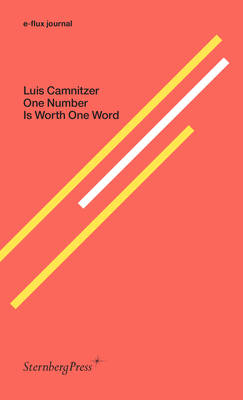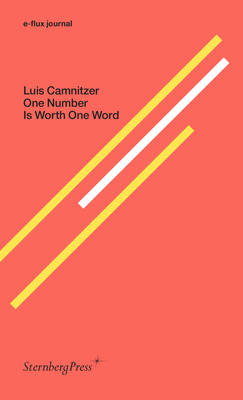
- Retrait gratuit dans votre magasin Club
- 7.000.000 titres dans notre catalogue
- Payer en toute sécurité
- Toujours un magasin près de chez vous
- Retrait gratuit dans votre magasin Club
- 7.000.0000 titres dans notre catalogue
- Payer en toute sécurité
- Toujours un magasin près de chez vous
Description
For more than half a century, the artist Luis Camnitzer has been concerned with the same things. The essays gathered in this book outline a radically democratic and frequently provocative vision of both art and education. In the first essay, written in 1960, Camnitzer proposes curricular change of the Escuela Nacional de Bellas Artes in Uruguay, part of a collective effort to bring the school up to the ideal level Camnitzer and fellow artists, students, and educators desired. And in the final essay Camnitzer sums up what he would want an art school to be if he applied to one today--suggesting (with typical dry wit) that the first effort to improve art education may not have succeeded.
Working across such mediums as printmaking, sculpture, language, and installations, Camnitzer's work investigates how power is exercised and can be challenged in society. An influential teacher, over the six decades covered by this volume, he has interrogated the power structures inherent to the practice of art at the same time as he explores its liberating potential.
Many of these texts are published here for the first time. The book offers a singularly authoritative--yet also anti-authoritative--gathering of a life's work in art, education and activism.
Spécifications
Parties prenantes
- Auteur(s) :
- Editeur:
Contenu
- Nombre de pages :
- 288
- Langue:
- Anglais
- Collection :
Caractéristiques
- EAN:
- 9783956795091
- Date de parution :
- 13-10-20
- Format:
- Livre broché
- Format numérique:
- Trade paperback (VS)
- Dimensions :
- 107 mm x 175 mm
- Poids :
- 226 g

Les avis
Nous publions uniquement les avis qui respectent les conditions requises. Consultez nos conditions pour les avis.






